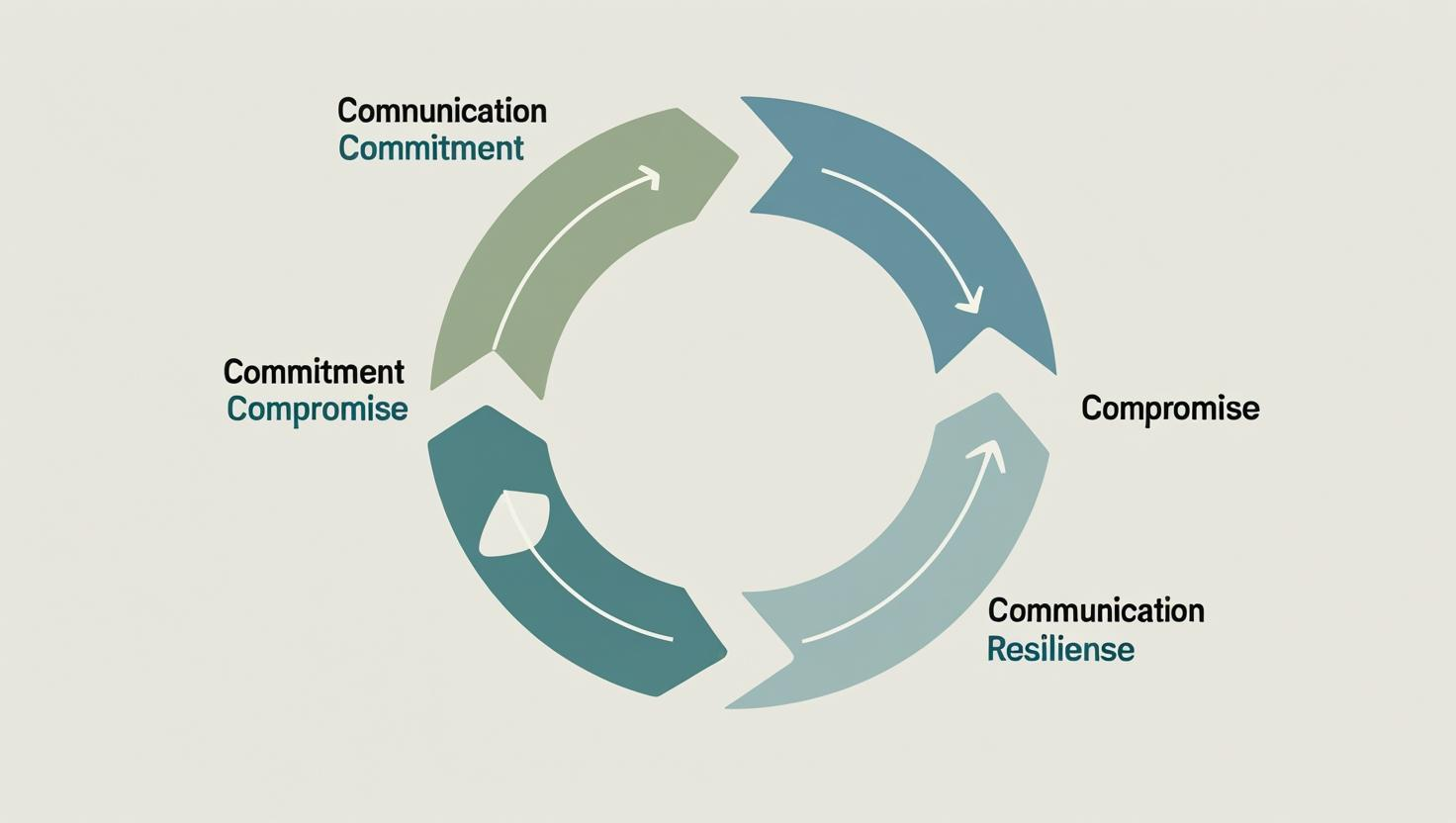
A mindful relationship is all about being truly present and tuned in with your partner. This means actively engaging and connecting on a deeper level rather than operating on autopilot. When we’re mindful, we’re more in tune not just with our own thoughts and feelings, but with our partner’s too.
The magic of a mindful relationship lies in presence and awareness. It’s about sharing moments where both partners are completely ‘there’—mentally, physically, and emotionally. This kind of relationship stands out because it builds a strong foundation of respect and understanding that isn’t easily shaken by the storms of life.
Mindful relationships prioritize open communication, empathy, and genuine interactions. These relationships aren’t perfect, but they thrive on the willingness of both partners to work through challenges together. Being mindful means breaking the habit of old patterns and choosing to create intentional and meaningful moments.
So, how can mindfulness boost your relationship? By practicing it, you’ll likely notice an increase in emotional intelligence, a stronger sense of connection, and an improved ability to navigate the ups and downs of partnership. It fosters a deeper connection where both people feel seen, heard, and valued.
The Five A’s of Mindful Loving: A Pathway to Deeper Connection
Mindful loving revolves around what experts call the Five A’s: Attention, Acceptance, Appreciation, Affection, and Allowing. These are the building blocks for any meaningful and thriving relationship.
- Providing undivided attention to your partner in the hustle and bustle of life can be the glue that holds things together. It’s all about listening and being present, even when distractions are pulling at you from all directions.
- Acceptance is recognizing each other’s selves, quirks and all, with love and without wanting to change them. Embracing differences with understanding creates a safe space where both partners can be genuine and vulnerable.
- Appreciation goes beyond regular thank-yous. It’s about recognizing and valuing the small and big things your partner does. Celebrate those little victories together—the everyday kindness, the support, the love.
- Affection isn’t solely about grand romantic gestures but also the little expressions of love. Holding hands, surprise notes, or even a warm smile can go a long way in keeping the spark alive.
- Allowing your partner to be their own person is the final piece of the puzzle. This means stepping back and supporting each other’s individuality and personal growth without trying to control or dictate every move.
These Five A’s, when practiced sincerely, can transform a relationship into a nurturing environment. They help you build a bond that’s not only enduring but also deeply fulfilling.
Becoming a Mindful Partner: Cultivating Self-awareness and Empathy
Being a mindful partner means getting real about self-awareness and empathy. It’s about understanding your own emotions and how they impact your partner, and being able to walk in their shoes too.
- Self-awareness is carving out time to tune into your own mind and understand what makes you tick. Why does a certain comment irk you, or why does that morning coffee routine mean so much? Knowing these things helps manage reactions and responses.
- Empathy is the flip side, where you step into your partner’s world. Listening actively, seeking to understand their perspectives, and showing you care about their experiences are key. It’s not about fixing every problem but about being there, really there, when they need it.
- Effective mindful partners don’t just hear; they listen. This means putting the phone down, making eye contact, and taking in not just the words but the emotions and intentions behind them.
Becoming more mindful involves letting go of autopilot habits. Engage in daily practices like a moment of reflection or setting intentions for interactions with your partner. Mindfulness isn’t an end goal but a journey offering growth and understanding, strengthening the bond you share.
The 3 C’s of Healthy Relationships: Communication, Commitment, and Compromise

Diving into the core of any thriving relationship, you’ll find the 3 C’s—Communication, Commitment, and Compromise. These elements are vital for keeping relationships harmonious and dynamic.
- Communication: Is where everything begins. It’s more than just talking; it’s about openly sharing thoughts, feelings, and concerns while also being ready to listen and fully engage. Communication nurtures trust and dissolves misunderstandings before they snowball into bigger issues.
- Commitment: Is about sticking with each other through thick and thin. It’s about being dedicated to making things work, even when the going gets tough. This steady dedication builds safety nets for both partners, allowing room for genuine vulnerability and honesty.
- Compromise: Is the art of finding middle ground. Relationships thrive when both partners can meet in the middle, respecting each other’s needs and viewpoints. It doesn’t mean losing oneself but rather balancing between giving and receiving.
These three factors, when combined, form a sturdy framework that allows couples to tackle anything life might throw their way. They keep the relationship dynamic and evolving, fostering a mutual respect that enriches the partnership.
Fostering Long-term Happiness through Mindful Relationship Practices
Building a mindful relationship isn’t a one-time thing; it’s an ongoing process. The key is consistently nurturing the elements that make relationships thrive—like presence, communication, and empathy.
Mindfulness in relationships offers long-term benefits, including deepened connection, reduced conflict, and a greater sense of partnership satisfaction. As you practice, you’ll find both you and your partner growing closer, fortified by a shared understanding and openness.
Challenges will arise, of course. Old habits might try to creep back in, and miscommunications happen. But embracing mindfulness means recognizing these moments as opportunities for growth rather than setbacks.
Consider setting aside times for regular check-ins with each other to touch base on how you’re both feeling. These conversations can be informal but keep the dialogue open, ensuring both partners feel heard and valued.
Mindful relationships aren’t about perfection but about authenticity and willingness to continuously evolve together. Keep cultivating those mindful moments, celebrating the highs and holding each other through the lows, knowing you’re both invested in a future that’s built on mutual respect and love.
